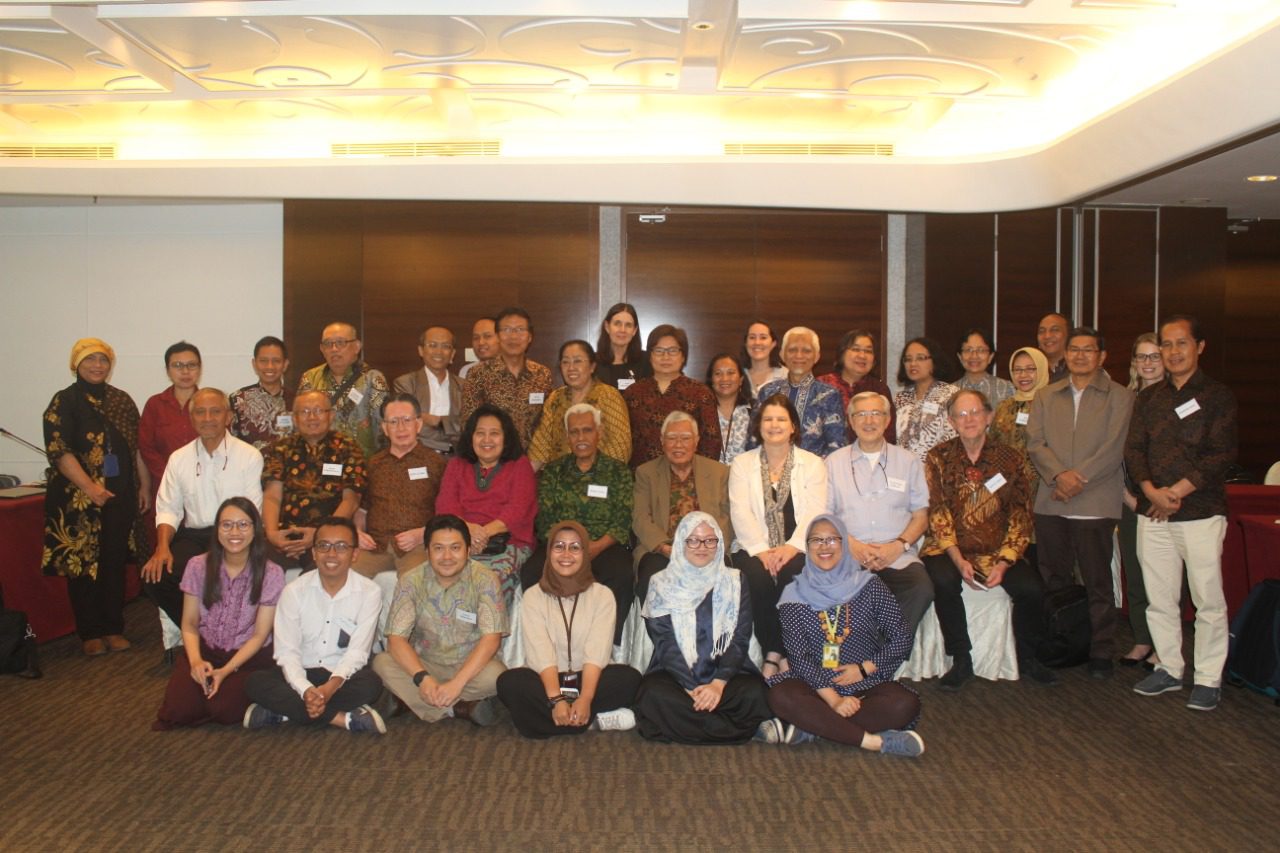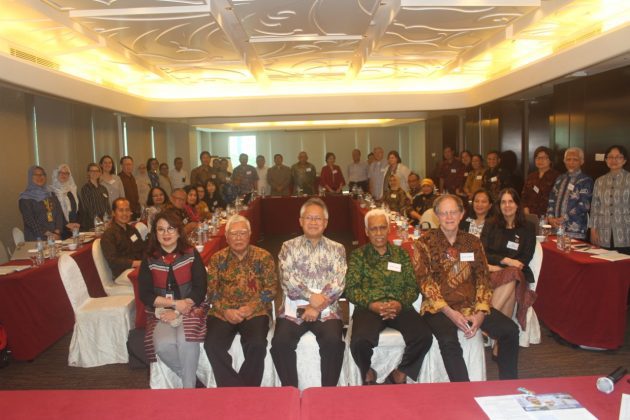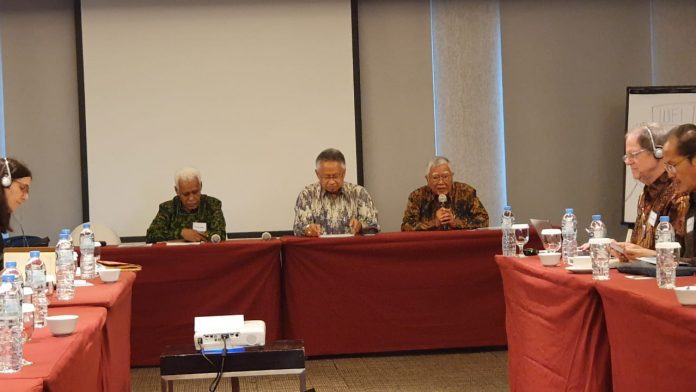
Speaker and Participants of the Multiple-Micronutrient Supplementation Symposium (MMS) at the Luwansha Hotel, Jakarta, (1/13/2020)
Jakarta, innews.co.id – Multiple-Micronutrient Supplementation (MMS) has been proven to improve the quality of pregnant women and babies born. Thus preventing stunting. However, to implement it into a program it is still necessary to study the effectiveness and cost of the program, including the preparation of the MMS supply.
This is the conclusion of a one-day symposium on the impact of MMS consumption by pregnant women on the health and condition of babies born, held by the Indonesian Nutrition Institute (IGI) in collaboration with Johns Hopkins University (JHU) supported by KIRK Humanitarian and Vitamins Angels in Hotels Luwansha, Jakarta, (1/13/2020).
The symposium opened by Prof. Dr. Satryo Brojonegoro, Chair of the Indonesian Academy of Sciences (AIPI) considers that good pregnancy outcomes reduce the likelihood of stunting.

Speakers at the MMS Symposium organized by the Indonesian Nutrition Institute (IGI) in collaboration with Johns Hopkins University (JHU) were supported by KIRK Humanitarian and Vitamins Angels at the Luwansha Hotel, Jakarta, (1/13/2020
Satryo welcomed the effort to discuss the results of research as scientific evidence which is the basis for formulating the MMS utilization policy.
The results of this symposium will be further studied by AIPI as material for policy advocacy to the government.
A total of 11 MMS research papers by national and global institutions were presented at this symposium. From national institutions, among others, by Prof. Dr. Endang Achadi from UI, Prof. Hamam Hadi (Alma Alta University of Yogyakarta), Dr. Toto Sudargo (UGM), Prof. Dr. Razak Thaha (Hasanudin University), Prof. Sri Sumarmi (Airlangga University), and Dr. Aditiawarman (IDI).
Meanwhile, from international institutions, among others, by Prof. Keith West from John Hopkins University, Kristen Hurley, MPH., PhD., (Associate Professor Johns Hopkins Bloomberg School of Public Health and Vitamin Angels), Clayton Ajello Dr.PH., (Vitamin Angels), and Ann Witteveen (Nutrition International / NI).

Prof. Dr. Razak Thaha, Prof. Keith West from John Hopkins University, Prof. Dr. Satryo Brojonegoro, Chair of the Indonesian Academy of Sciences (AIPI) and Prof. Soekirman
From government institutions, the presentation was given by Dr. Dhian Dipo, SKM., MA., Director of Community Nutrition, Ministry of Health and Dr. dr. Anang Otulowa Head of the Banggai District Health Office in Central Sulawesi.
The MMS discussed follows the formula of the United Nations International Mutual Micronutrient Antenatal Preparation (UNIMMAP).
Present at the event included officials from ministries / institutions and nutrition experts including Ir. Doddy Izwardy MSc (Balitbangkes), Dr. dr. Brian Sriprahastuti MPH (KSP), Dr. dr. Lucy Widasari and Arip Muttaqin Ph.D., (TP2AK Setwapres), Prof. Dr. Veni Hadju and Dr. Djunaidi Dachlan (Unhas), Prof. Dodik Briawan (IPB), Prof. Purnawan Junaidi (FKM UI), Dr. Minarto, MPH., Dr. dr. Elvina Karyadi, PhD., Dr. Arum Atmawikarta, MPH., And Dr. Abas Basuni. Also present were UN agencies such as WHO Indonesia and Unicef Indonesia.
The day’s discussion concluded:
- The program of adding Blood Tablets (TTD, containing iron and folic acid), which began in the 1990s, has not succeeded in reducing the rate of iron anemia in pregnant women due to the low compliance in consuming them (35%) based on Riskesdas 2018.
- The anemia rate due to iron deficiency in pregnant women increased from 37.2% in 2013 to 48.9% in 2018 (Riskesdas 2013, and 2018).
- The low compliance was identified because of weak counseling / nutrition education by health workers and side effects felt by pregnant women.
- Compared to TTD, MMS containing 15 multi-vitamins and minerals (UNIMMAP formula) is clinically proven to reduce the risk of low birth weight babies (LBW), reduce the risk of better birth length, small fetuses at gestational age. , stillbirth and minor side effects.
- MMS reduces morbidity in pregnant women including the risk of eclampsia and bleeding.
- The benefit / cost ratio, or B / C ratio of MMS is very high.
- The TTD distribution system can be used for MMS with improvements, particularly aspects of counseling by health workers to pregnant women and their monitoring and evaluation. The experts also agreed to create a taskforce to study MMS research and provide input for the government.
To view the original article visit: http://innews.co.id/atasi-stunting-igi-dan-jhu-gelar-simposium-soal-konsumsi-mms/

